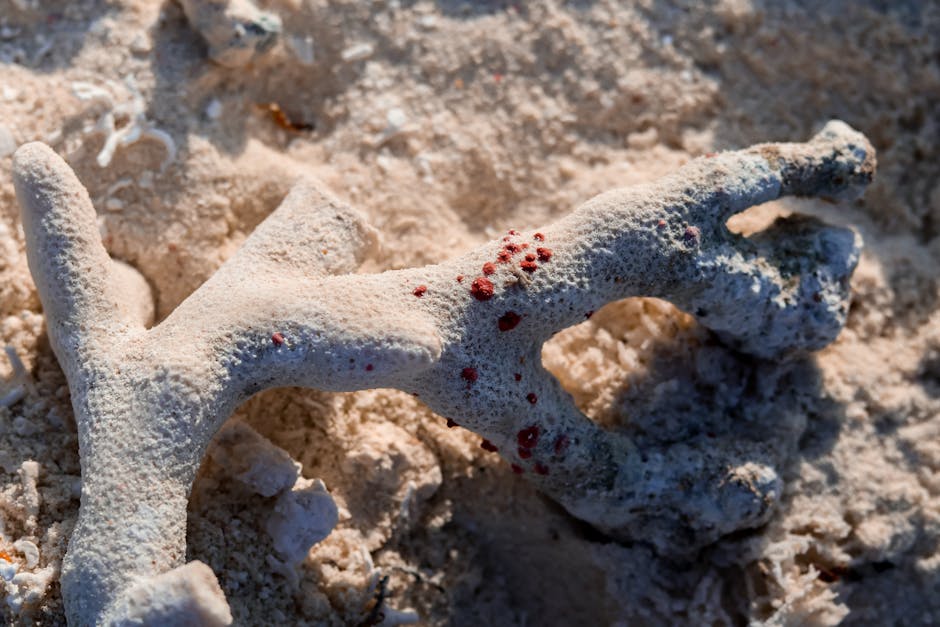Environmental Drivers of Reef Health
A multitude of environmental parameters significantly affect coral reef health. Sunlight penetration, a fundamental requirement for symbiotic algae (zooxanthellae) within corals, dictates primary productivity. Changes in water clarity and turbidity, often exacerbated by sediment runoff from land-based sources, can severely limit light availability, impacting coral growth and photosynthetic efficiency. This, in turn, influences the entire reef food web.
Temperature fluctuations constitute another critical factor. Corals exhibit a delicate temperature tolerance range. Even minor increases can trigger coral bleaching, a phenomenon where zooxanthellae expel from coral tissues, leading to coral mortality. Ocean warming, a consequence of climate change, is a prominent threat, leading to widespread and recurrent bleaching events. Furthermore, variations in salinity, essential for coral osmoregulation, can also impact their survival and reproduction. Water currents, essential for nutrient distribution and oxygenation, alongside water quality parameters like dissolved oxygen levels, play pivotal roles in maintaining a healthy reef environment.
Ocean acidification, a consequence of increased atmospheric carbon dioxide absorption by the ocean, is another emerging threat. Reduced pH levels directly affect coral calcification, the process by which corals build their skeletons. This reduced calcification rate can hinder coral growth and increase susceptibility to physical damage, impacting reef structure and resilience.
Biological Interactions and Symbiosis
The intricate web of biological interactions within coral reefs plays a significant role in their health. Competition among various reef organisms, including corals, algae, and fish, can influence the abundance and distribution of different species. The balance of these interactions can be profoundly disrupted by human activities or environmental changes, leading to shifts in community structure and potential declines in coral abundance.
Symbiotic relationships, such as those between corals and zooxanthellae, are fundamental to reef functioning. The efficiency and stability of these symbiotic partnerships significantly impact coral health and resilience. Disruptions in the symbiotic relationships, particularly from environmental stressors, can lead to coral bleaching and potential mortality. Other vital symbiotic associations, like those between various invertebrates and reef fish, also play a crucial role in the overall ecosystem balance.
The Role of Human Activities
Human activities exert significant pressure on coral reef ecosystems. Coastal development, destructive fishing practices, pollution, and climate change all contribute to reef degradation. Destructive fishing practices, such as cyanide fishing and blast fishing, directly damage corals and other reef organisms. Additionally, pollution from agricultural runoff, industrial discharge, and sewage introduces harmful pollutants into the marine environment, impacting water quality and coral health.
Recreational activities, while often beneficial in promoting awareness, can also contribute to reef degradation through anchoring damage, boat groundings, and increased physical disturbance. Sedimentation, a consequence of deforestation and soil erosion, significantly impacts reef health by reducing light penetration and smothering coral colonies. Furthermore, the effects of invasive species, often introduced by human activity, can have profound consequences for native reef organisms, disrupting the ecological balance.
Conservation Strategies and Management
Effective conservation strategies hinge on a deep understanding of the multifaceted factors influencing reef health. Establishing marine protected areas (MPAs) is crucial for safeguarding vital habitats and promoting species recovery. Implementing sustainable fishing practices, reducing pollution from terrestrial sources, and mitigating climate change are paramount for long-term reef conservation. Reef restoration efforts, including coral gardening and transplantation, aim to bolster existing coral populations and enhance reef resilience. Continued research into the ecological processes within coral reefs, coupled with community engagement and public awareness programs, are vital for promoting sustainable practices and ensuring the long-term health and viability of these irreplaceable marine ecosystems.
Looking Ahead
Coral reef ecosystems face a multifaceted array of threats, demanding a holistic approach to their conservation. By recognizing the intricate interplay of environmental factors, biological interactions, and human influences, we can develop more effective conservation strategies and ensure the long-term survival of these magnificent ecosystems. The challenges are substantial, but the importance of coral reefs to global marine biodiversity and human well-being necessitates determined action and sustained commitment to their preservation. Monitoring reef health indicators, adopting sustainable practices, and supporting research are integral steps toward safeguarding these invaluable resources for future generations. Continued interdisciplinary collaboration amongst marine biologists, oceanographers, policymakers, and local communities is essential to navigate the challenges and secure a healthy future for coral reefs.
